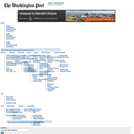
The Washington Post presents articles related to the World Food Crisis. The articles date from 2008-2009 and are not updated.
- Subject:
- Life Science
- Nutrition
- Social Science
- Sociology
- Material Type:
- Diagram/Illustration
- Reading
- Date Added:
- 01/01/2008

The Washington Post presents articles related to the World Food Crisis. The articles date from 2008-2009 and are not updated.
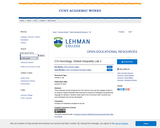
These materials include background for the instructor and a lab that engages student in an analysis of global inequality while learning and using the R language (a programming language for statistics). Students obtain data on the US and two other countries (one more developed and one less developed).
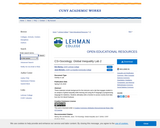
These materials include background for the instructor and a lab that engages student in an analysis of global inequality while learning and using the R language (a programming language for statistics). Students ultimately write a function to access country level data from the CIA World Factbook.
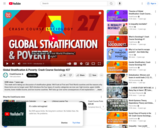
This week we’re taking our discussion of stratification global. We’ll look at First and Third World countries and the reasons why these terms are no longer used. We’ll introduce the four types of country categories we now use: high income, upper middle income, lower middle income, and low income countries. We’ll also go over some consequences of and explanations for global poverty. A note about the maps in this episode: the maps don't reflect the most current data and so there are a few countries that have moved up or down in classification.

This seminar explores changes in the international economy and their effects on domestic politics, economy, and society. Is globalization really a new phenomenon? Is it irreversible? What are effects on wages and inequality, on social safety nets, on production, and innovation? How does it affect relations between developed countries and developing countries? How globalization affects democracy? These are some of the key issues that will be examined.

This course explores how and why Japan, a late-comer to modernization, emerged as an industrial power and the world’s second-richest nation, notwithstanding its recent difficulties. We are particularly concerned with the historical development of technology in Japan especially after 1945, giving particular attention to the interplays between business, ideology, technology, and culture. We will discuss key historical phenomena that symbolize modern Japan as a technological power in the world; specific examples to be discussed in class include kamikaze aircraft, the Shinkansen high-speed bullet train, Godzilla, and anime.

The Good Country Index emphasizes that the whole world is one village concept. This resource is linking to the URL of Good Country Index report of India which stands in the 44 positions.

This course explores the values (aesthetic, moral, cultural, religious, prudential, political) expressed in the choices of food people eat. Analyzes the decisions individuals make about what to eat, how society should manage food production and consumption collectively, and how reflection on food choices might help resolve conflicts between different values.
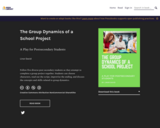
A Play for Postsecondary Students
Short Description:
Follow five diverse post secondary students as they attempt to complete a group project together. Students can choose characters, read out the script, improvise the ending, and discuss the concepts and skills related to group dynamics.
Long Description:
The Group Dynamics of a School Project was developed in order for students to learn about group dynamics through acting out the roles of five diverse post secondary students trying to complete a group project. Key elements of group dynamics are portrayed including conflict, leadership skills, groupthink, group climate, microaggressions and more. Each scene contains a short script to be read out loud, a prompt for improvising an ending, discussion questions, and key takeaways. Students come away with a better understanding of the theories behind group dynamics, increased self awareness, and a better understanding of other group members.
Word Count: 4778
(Note: This resource's metadata has been created automatically by reformatting and/or combining the information that the author initially provided as part of a bulk import process.)
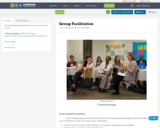
Group Facilitation guidelines from an Internet Culture course.
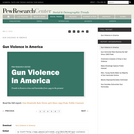
Trends in firearm crime and homicides from 1993 to the present.
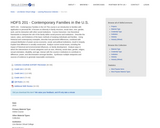
This course is an introduction to families with application to personal life. It focuses on diversity in family structure, social class, race, gender, work, and its interaction with other social institutions.
Course Outcomes:
1. Use theoretical frameworks to interpret the role of the family within social process and institutions.
2. Describe the nature, value, and limitations of the basic methods of studying individuals and families.
3. Using historical and contemporary examples, describe how perceived differences, combined with unequal distribution of power across economic, social, and political institutions, result in inequity.
4. Explain how difference is socially constructed.
5. Analyze current social issues, including the impact of historical and environmental influences, on family development.
6. Analyze ways in which the intersections of social categories such as race, ethnicity, social class, gender, religion, sexual orientation, disability, and age, interact with the country’s institutions to contribute to difference, power, and discrimination amongst families.
7. Synthesize multiple viewpoints and sources of evidence to generate reasonable conclusions.
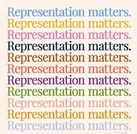
The resource provided is a semester long project that asks students to add to the historical record by researching and writing three narratives about marginalized individuals in modern US history. After the narratives are complete, students will compile their work on an ePortfolio using Google Sites. Provided are directions for the project as well as an exemple of the final ePortfolio linked at the bottom of the instructions.
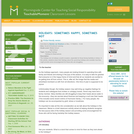
The holidays are not always a joyful occasion, especially for those facing hardship or stress. In this activity, students share their feelings about the upcoming holidays and consider how they might provide some encouragement for those who are struggling.

Ein Buch für VordenkerInnen, MeinungsmacherInnen und Feuerherzen der stillen Revolution
Short Description:
Mit seinem neuesten Werk: “Halbzeit im Kampf gegen den Mammon” zieht der ehemalige Diplomat im Dienste Österreichs nachdenklich Bilanz über eine aus den Fugen geratenen Welt, die Geld wie einen Götzen anbetet und in der Größenwahn Systeme schafft die weder überschaubar noch beherrschbar sind. Sein neuestes Buch ist an VordenkerInnen, MeinungsmacherInnen und Feuerherzen einer bereits stattfindenden “stillen” Revolution, gerichtet. Aber auch an alle kritischen BürgerInnen, die sich eine solidarischere und menschlichere Gesellschaft wünschen und schon heute an den Umbauarbeiten beteiligt sind. In seiner digitalen Form folgt das Buch den Creative Commons (CC) und ist daher kostenlos.
Long Description:
Was Paracelsus > für die Medizin gesagt hat, gilt auch bei großen Ideen: „Alles ist Gift, entscheidend ist die Dosis“ (Leopold Kohr)
Die Aufklärung hat vergessen, der linearen Vernunft mit dem Menschlichen Maß ihre Grenzen zu setzen, und so sind nun viele „große Ideen“ ins Unmaß geraten. Die Bündelung dieser Exzesse im Zeichen der Gier ist der „Mammon“ unserer Zeit; er hat einen Neo-Feudalismus entstehen lassen, der nun in Politik-Management und Hoch-Finanz den Ton angibt. Es ist das ein Neo-Feudalismus, der sich hinter einem Panzer der Komplexität versteckt, und zu dem es angeblich keine Alternative gibt.
Diesen Panzer durchbricht man mit einem Weltbild, das sich auf Überschaubarkeit und die Kooperation der Zivilgesellschaft stützt, und das dem Resilienz-Denken folgt. In Weiterentwicklung der Ideen Leopold Kohrs, E.F. Schumachers, Martin Nowaks und Charles Eisensteins entwirft der Autor eine solche Sicht. So zeigt seine „Drei-Schritt-Methode“, wo jeweils das Menschliche Maß liegt; und wie mit strikter Regionalisierung sowie einer Reform der Geld- und Zinspolitik der Weg von alternativlosem Frust zu gelungenem Leben gelingen kann. Es ist das eine stille Revolution „von unten“, die – noch immer außerhalb medialer Aufmerksamkeit – schon weit fortgeschritten ist, und die nach vielen erfolgreichen Pilotprojekten nun vor dem Durchbruch steht. Man muss sich nur trauen, also Du, ich und unsere Nachbarn …
Word Count: 57728
(Note: This resource's metadata has been created automatically as part of a bulk import process by reformatting and/or combining the information that the author initially provided. As a result, there may be errors in formatting.)

The goal of the lesson is to educate upper primary school students on the racist Halloween costumes present in today's society. Students will learn about where blackface originiated and how it contributes to the oppression of Black people all across the world. Students will learn using a Powerpoint and Kahoot!.
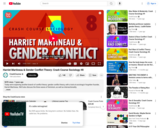
Today we’re exploring another branch of conflict theory: gender conflict theory, with a look at sociology’s forgotten founder, Harriet Martineau. We’ll also discuss the three waves of feminism, as well as intersectionality.
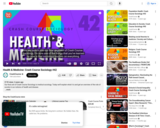
Our final unit of Crash Course Sociology is medical sociology. Today we’ll explain what it is and get an overview of the role of society in our notions of health and disease.

This class examines the built, psychosocial, economic, and natural environment factors that affect health behaviors and outcomes. Students will be introduced to tools designed to integrate public health considerations into policy making and planning, and will be given hands-on training on the application of Health Impact Assessment (HIA) methodology. This class is designed to prepare graduate students from planning and policy fields to interface with public health organizations, agencies, or advocacy groups in professional contexts.

Reflections on the Pandemic Year
Word Count: 4743
(Note: This resource's metadata has been created automatically by reformatting and/or combining the information that the author initially provided as part of a bulk import process.)